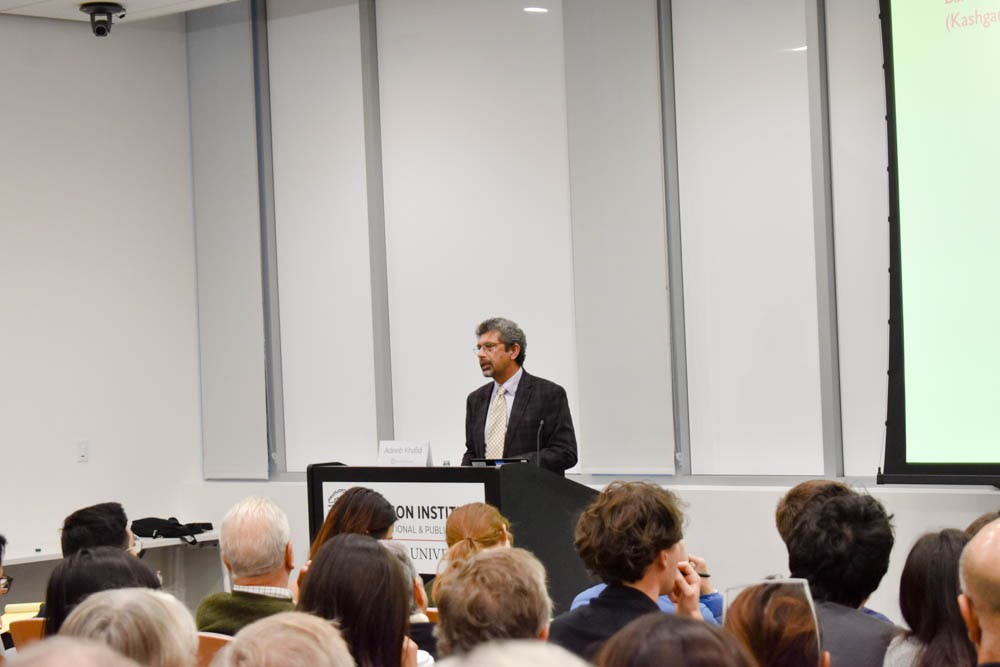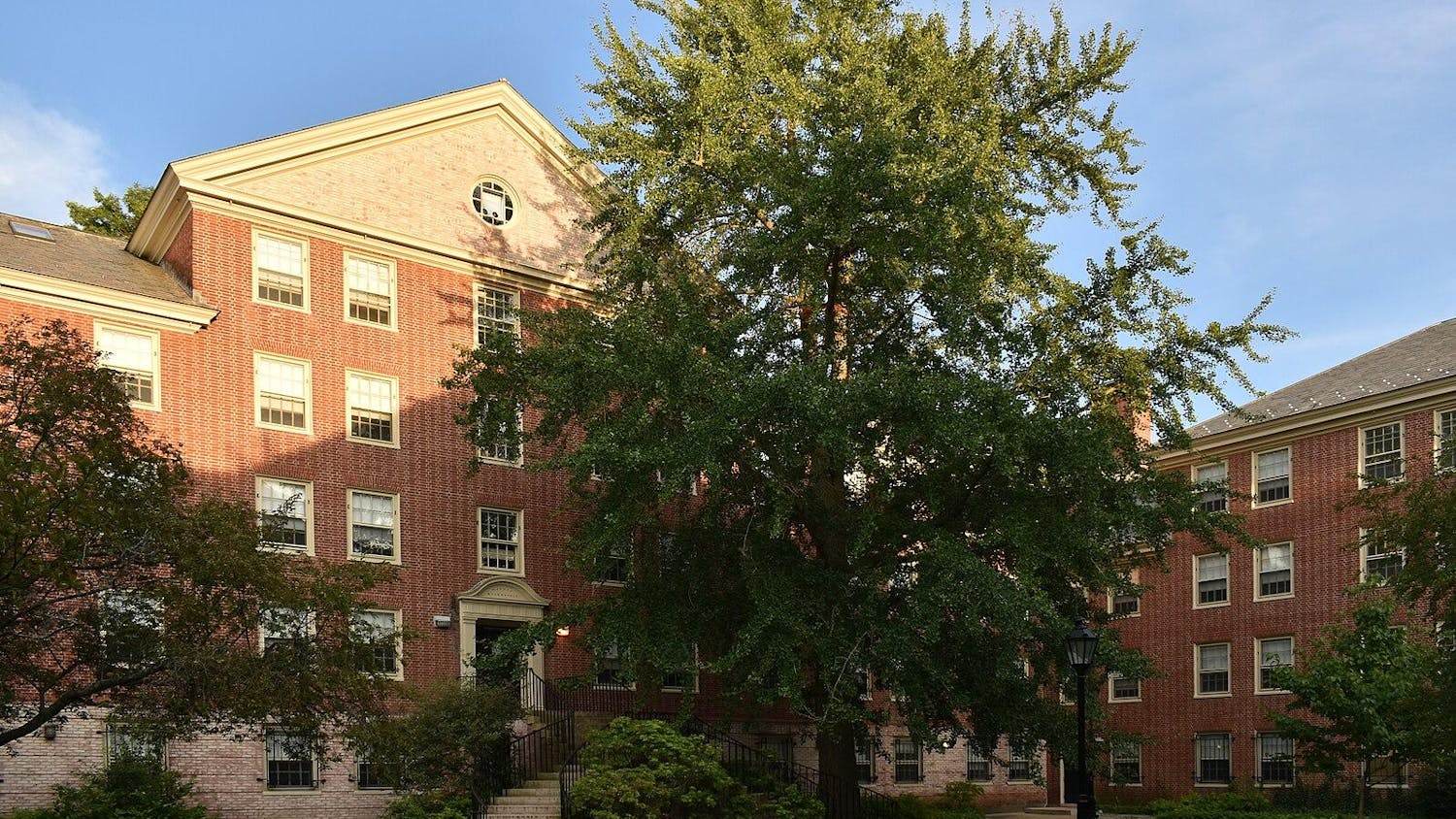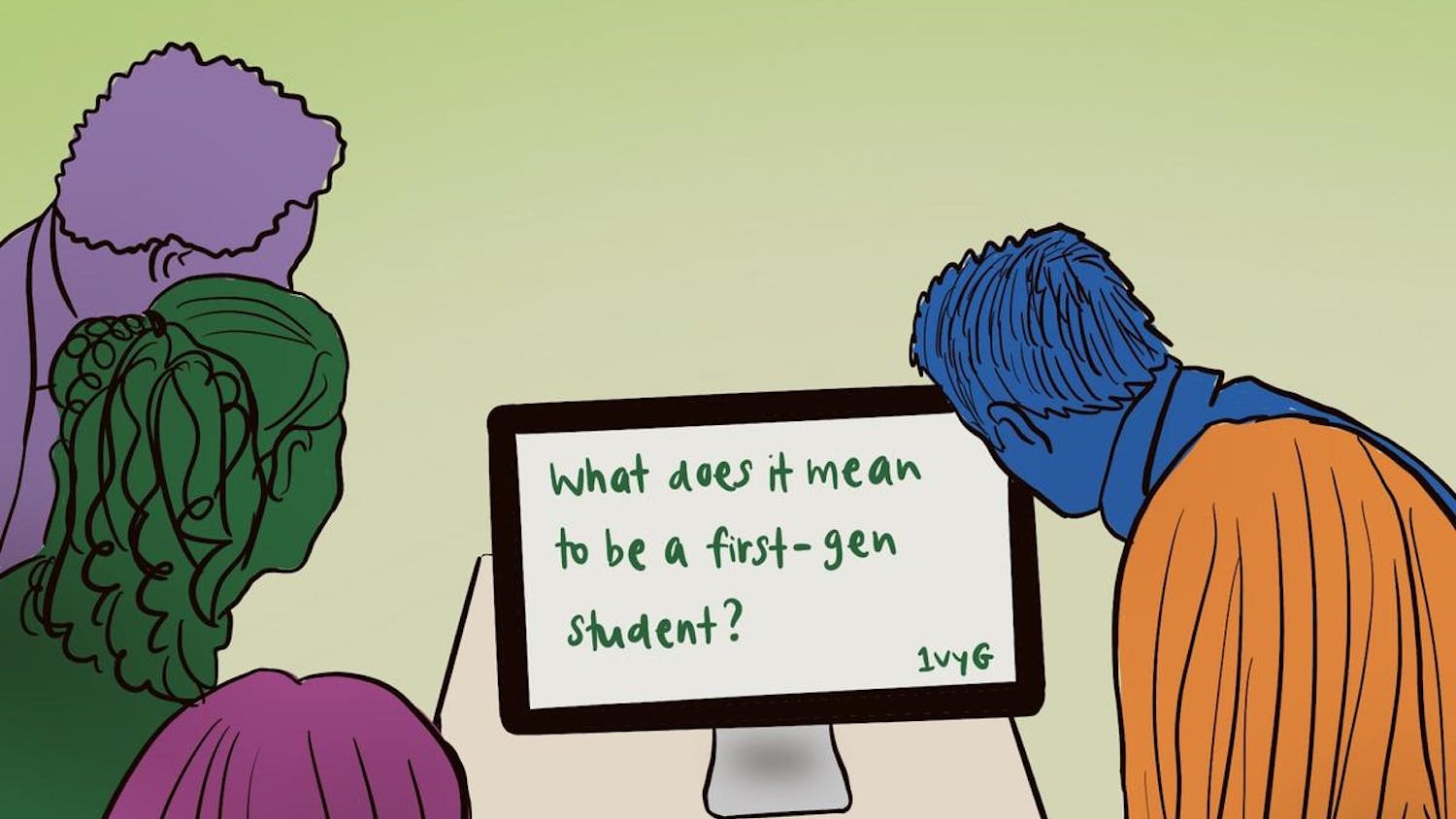In light of recent media attention on the ongoing mass detention of the Uyghur Muslims in China, Carlton College’s Professor of Asian Studies and History Adeeb Khalid spoke on the history of the people and their relationship to the Chinese government in a talk at the Watson Institute for International and Public Affairs Oct. 22.
The Center for Middle East Studies hosted the event, entitled “The Uyghurs’ China Problem, or How We Got to the Political Re-Education Camps of Xinjiang.”
Over roughly the past five years, the Chinese government has detained over a million Uyghur Muslims in what it calls “vocational training centers” scattered across China’s Xinjiang province, according to the Council on Foreign Relations. Khalid, who has visited the region himself, said the government’s policing of Uyghurs in Xinjiang amounts to a “surveillance state of a kind we have never seen before.”
Khalid has written a handful of works on Central Asia’s history, the most recent entitled “Making Uzbekistan: Nation, Empire, and Revolution in the Early USSR.” Khalid was invited to the University to discuss the ongoing Uyghur internment through a collaborative effort between the Center for Middle East Studies and the China Initiative, the Watson Institute’s “interdisciplinary hub for the study of modern China.”
Much of Khalid’s lecture revolved around the fundamental ideological rift between the Uyghur population and the Chinese government, which he said is based in a centuries-long historical tension. Khalid observed “a fundamental (ideological) dissonance at the heart of the problem.” The Communist Party’s “belief that China is a transhistorical entity with inviolable political boundaries” inevitably comes into conflict with the Uyghur’s Turkic ethnic identity, he added. The historical roots of this ideological fracture are especially important because the notion of a distinct Turkic political identity dates back to days of the Russian Empire and inception of the Soviet Union, he said.
Khalid’s historical survey of the Uyghur conflict particularly resonated with Frishta Qaderi ’20, one of event’s attendees. “I thought it was important to frame the issue as having historical roots in the Russian Empire and the emergence of Turkic ethnic consciousness,” Qaderi told The Herald.
Khalid attributed the more recent buildup of surveillance and detention infrastructure in Xinjiang to the rise of the Belt and Road Initiative, the name given to China’s controversial campaign for global economic development. The Chinese government has “co-opted post-9/11 anti-terrorist discourse” to label the Uyghurs as a destabilizing entity in a region integral to the Belt and Road Initiative, Khalid said. In the eyes of the Chinese government, “if Xinjiang is an area of turbulence, Belt and Road falls apart.”
When asked by a member of the audience if the Chinese government should be concerned about the detainments’ impact on China’s international reputation, Khalid said that “China has enough soft power that no one is going to complain.” Their vast economic reach explains the “deafening silence from other Muslim countries,” he added.
Despite this bleak outlook, Khalid’s lecture generated positive reactions from attendees who thought it was important that such a dire human rights issue receive as much attention as possible. “Chinese media is incredibly biased on this issue,” said Jenny Huang ’23. “It’s great to hear and consider the truth of the issue from a professional viewpoint.”





